Botolph of Thorney was an English abbot and saint. He
is regarded as the patron saint of boundaries, and by
extension, of trade and travel, as well as various aspects of
farming. His feast day is celebrated either on 17 June or 25
June.
Botolph and his brother Adolph were young
Saxon nobles living in the 7th century, and were sent for
their education to a Benedictine Abbey in France. Adolph rose
to be a Dutch Bishop, whilst Botolph came back to his native
East Anglia. He was given, by King Anna, a grant of land on
which to build a monastery. This land was at Icanhoh, a
site that has been said to be the present Boston (Botolph’s
Town) in Lincolnshire but is more likely to have been Iken,
near Aldeburgh in Suffolk. Certainly Icanhoh was
in a marshland area, for Botolph was said to have expelled the
swamps of their “Devils” – in fact, he probably had the
marshes drained and eliminated the “marsh gas” with its night
glow.
Born:
610 AD, England
Died:
680 AD
Place of burial:
Westminster Abbey,
Thorney Abbey and Ely Cathedral.
Feast day:
17 June (England); 25
June (Scotland); 1 December (translation of relics)
|
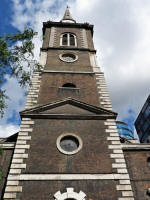
St Botolph's without Aldgate |
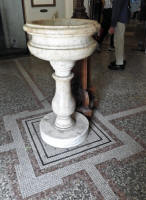 |
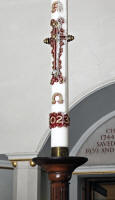 |
 |
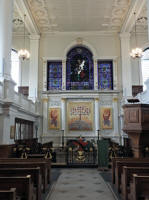 |
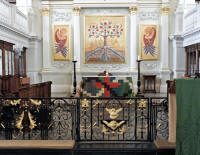 |
 |
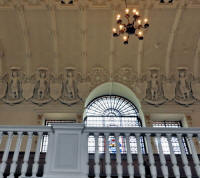 |
 |
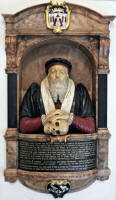 |
 |
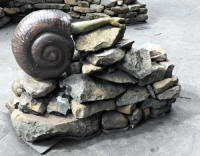 |
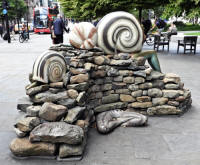
Human snails in Aldgate Sq. |
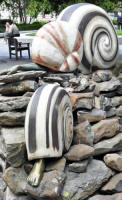 |
 |
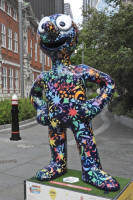 |
|
https://www.morphsadventurelondon.com/
|
 |
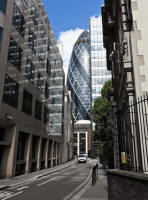 |
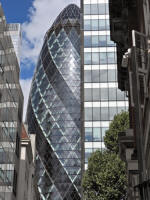 |
 |

Not for me! |
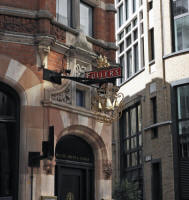 |

What is this mural about? |
 |
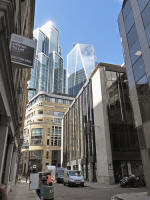 |
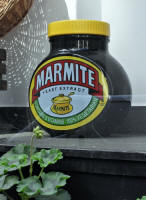
Iconic catering sized Marmite |
 |
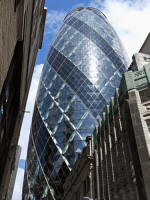
The Gherkin |
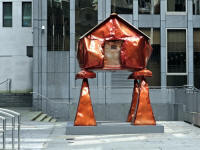
Sculpture in the City |
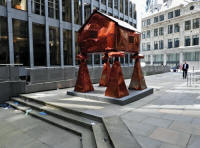
The Granary |
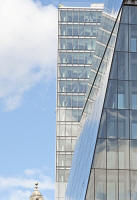 |
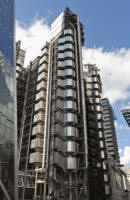
Lloyds Building |
 |
 |
 |
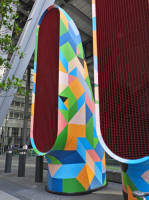 |
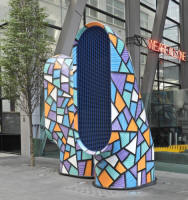 |

We are alone or We are all one |
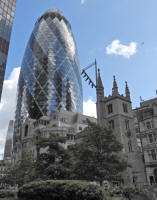 |

Pittu Pithu Pitoo
by Simon Barclay
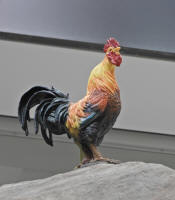 |
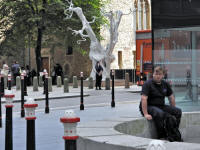 |
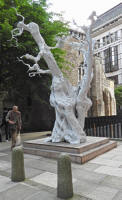
Summer Moon by Ugo Rondinone |
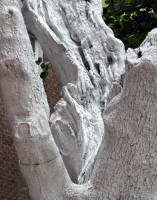 |

We had coffee in a coffee roasting establishment |
 |
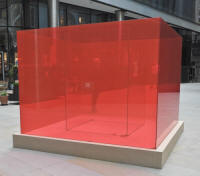
Pacific Red II |
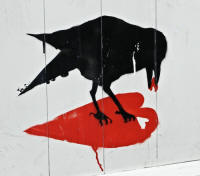
Crow |

Not for me with bells on! |
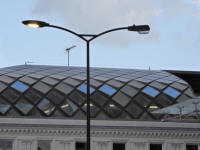 |
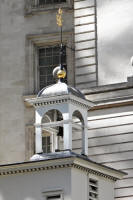
Bell tower |
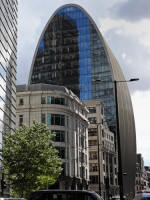
The Can of Ham, 70 St Mary Axe |

St Botolph without Bishopsgate |
 |

Muamba Grove o Hue#1 Muamba Grove Hue#2 by Vanessa da Silva |
 |
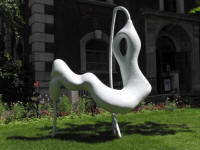 |
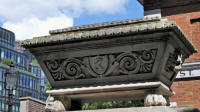 |
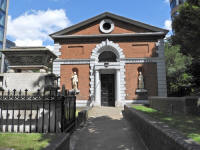 |
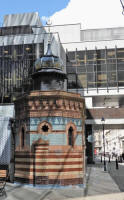 |
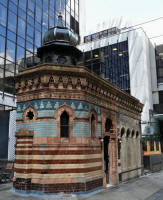 |
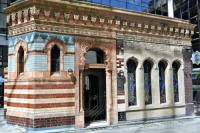
Moorish Bathhouse |
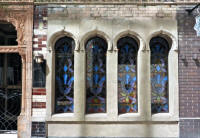 |
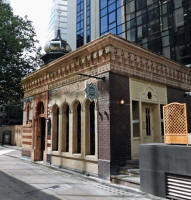 |
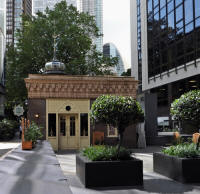 |
Architect George Harold Elphick (1851-1924), whose
office was practically next door to the site, designed a flamboyant
structure in a Moorish style, cleverly using only a very small footprint
at pavement level, with the baths below ground. Elphick also designed
the tiles for the interior; based on a pattern used in the Alhambra
Palace, they were manufactured by Craven Dunnill in Shropshire. The new
facilities, Nevills Turkish Baths, were opened 125 years ago in February
1895 and were widely admired. |
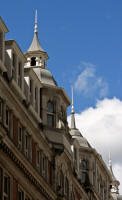 |
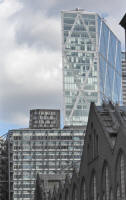 |
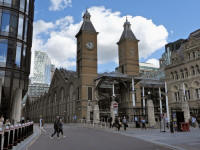
Liverpool Street Station |
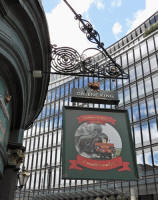 |
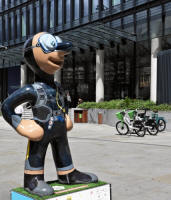 |
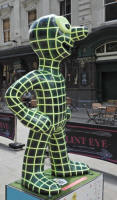 |

Textures |
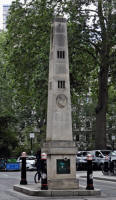 |

The King's Arms |
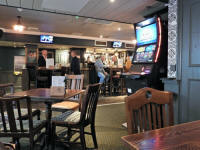
We had lunch at the King's Arms |

Worshipful Company of Gardeners |
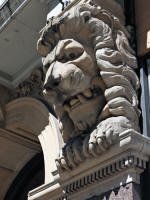 |
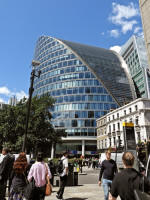
Moor House |
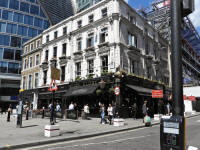
The Globe |
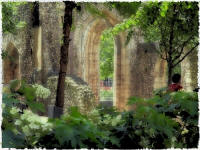 |
The Minotaur by Michael Ayrton |

Original London Wall |
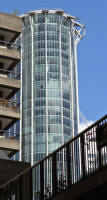
City point |
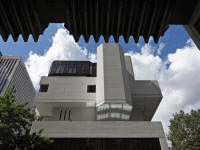 |
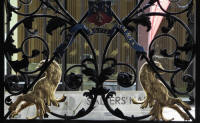
Sal sapit omnia - Salt savours all Worshipful Company
of Salters the supporting animals are otters |

St Giles Cripplegate |

Water lilies |
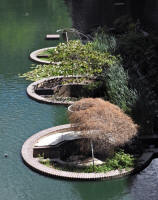 |
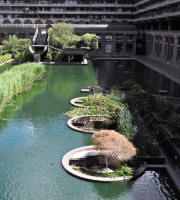
Barbican |
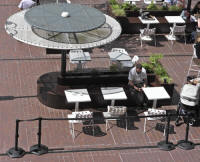 |
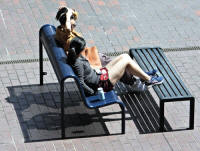
Shadows |

The Barbican Muse |
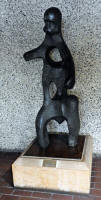 |

St. Giles Cripplegate |

Mendelssohn's tree |

Space Invader |
We walked to Farringdon and caught the train |